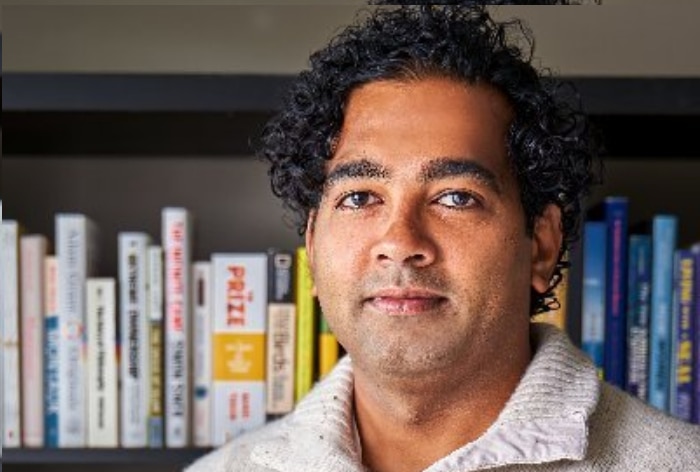From MIT to Biostate.ai: Dr. Ashwin Gopinath’s innovation journey in AI-powered drug discovery
In the world of scientific innovation, few people have had as significant an impact as Dr. Ashwin Gopinath. A visionary at the intersection of biotechnology and artificial intelligence, Dr. Gopinath’s multifaceted career exemplifies the convergence of multiple scientific disciplines and cutting-edge technologies. As a biotech entrepreneur, associate professor at MIT, and active investor in startups, he stands out as a pioneering figure whose work continues to push the boundaries of what is possible in healthcare and technology.
Dr. Gopinath’s career is marked by a rich and diverse academic background. With a background in electrical engineering, applied physics, and biology, he has carved out a unique niche at the intersection of these fields. His academic pursuits began with a BSc in Electrical Engineering in India, followed by advanced studies at MIT and Boston University, where he received the best PhD thesis award for his groundbreaking work on light transport in disordered media.
Dr. Gopinath currently serves as an Associate Professor at MIT, where his interdisciplinary research spans artificial intelligence, applied physics, and biology. His innovative approach has led to significant contributions in diverse fields ranging from computational geometry and nanofabrication to advanced applications in brain-machine interfaces, biosensing, and optical computing.
Innovating in therapeutic discovery with Biostate.ai
A key aspect of Dr. Gopinath’s work is Biostate.ai, a company he co-founded to apply generative AI to predicting drug toxicity and safety. Biostate.ai leverages specialized techniques to predict biological states with remarkable accuracy, enabling significant reductions in data collection costs and creating a substantial data advantage. This innovative approach has already achieved a tenfold reduction in costs and aims to reduce costs by a factor of 100.
Biostate.ai is developing multiple AI tools for data analysis that function similarly to an AI biotech scientist. These tools have the potential to transform drug development and health monitoring, including the groundbreaking ability to move biological experiments directly from animals to humans. With a mission to revive failed drugs and address an estimated $180 billion market, Biostate.ai represents a significant advancement in the field of therapeutic discovery and development.
From Google X to Palamedrix: a path of innovation
Dr. Gopinath’s entrepreneurial journey began with the co-founding of Palamedrix, a company that combined AI with semiconductor manufacturing techniques. This initiative culminated in a major milestone when Somalogic (NASDAQ: SLGC) acquired Palamedrix in 2022, validating the potential of Dr. Gopinath’s innovations.
Prior to Palamedrix, Dr. Gopinath honed his multidisciplinary expertise as a senior researcher at Google X. There, he contributed to projects involving generative algorithms for image sequence prediction and technologies for high-throughput biomolecule analysis. This experience was instrumental in shaping his approach to integrating AI with biological research.
Academic contributions and innovative research
Dr. Gopinath’s academic career is distinguished by his extensive publication record, with over 30 peer-reviewed articles in leading journals and a significant patent portfolio. His research, combining computational geometry with nanofabrication, has led to innovative applications, such as using single DNA molecules to create complex patterns. This research, detailed in the article “Engineering and mapping nanocavity emission via precision placement of DNA origami,” has important implications for advances in several fields, including brain-machine interfaces, biosensing, and optical computing.
In 2023, Dr. Gopinath made remarkable advances in AI with his work on “Reflexion,” presented at NeurIPS. This innovative approach focused on enabling large language models (LLMs) to self-correct. At the time of publication, his method enabled GPT-3.5 to outperform GPT-4 on several coding tasks and writing challenges, marking a significant advancement in AI capabilities.
Current focus and future directions
Dr. Gopinath is currently on leave from MIT to devote himself full-time to Biostate.ai. His commitment to translating research into practical solutions is evident in his extensive body of work and his continued drive for innovation. As he continues to push the boundaries of what is possible at the intersection of AI and biotechnology, his work promises to revolutionize drug development and healthcare.
Dr. Gopinath’s contributions to science and technology have been recognized by academic and scientific communities around the world, reflecting the impact of his interdisciplinary work. As he continues to explore new frontiers, his research not only promises to transform the landscape of drug discovery and development, but also invites us to imagine a future in which human ingenuity and artificial intelligence increasingly intersect, raising intriguing questions about the nature of scientific discovery itself.
Topics
